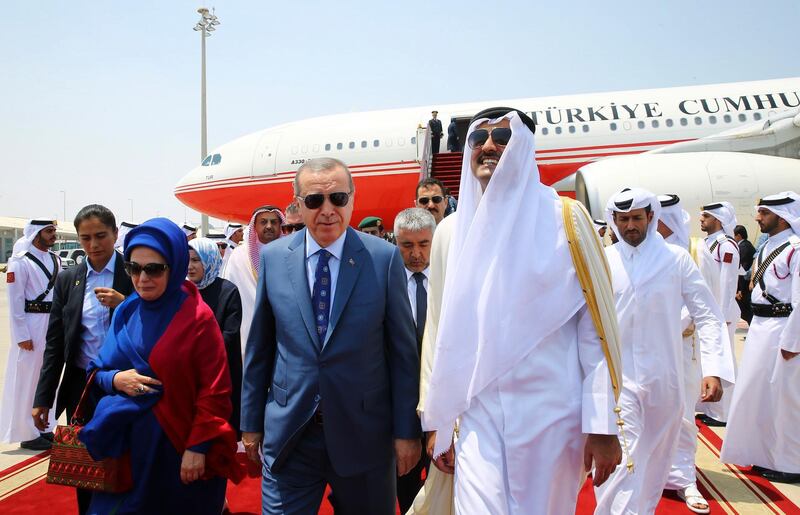In November 2017, three little-known finance ministers from Qatar, Iran and Turkey met in Tehran to strike a deal establishing a "joint working group to facilitate the transit of goods between the three countries". Although the meeting attracted little attention, those well-versed in the dynamics of this region saw something rather ominous: a dangerous new triptych was forming.
Coming as it did five months after the Arab quartet severed ties with Doha over its support for extremism, the meeting was an early indicator of the support Qatar would receive from Turkey and Iran – and Doha’s immense disregard for the concerns of its Gulf neighbours.
Back then, such a prospect was portentous. Turkey and Iran, powerful nations with deep pockets, stepped in with food, supplies and airspace access to cushion Qatar’s fall as the Gulf crisis escalated. Alongside Russia, Iran and Qatar hold a significant portion of the world’s gas reserves.
But today, one would struggle to find two allies less advantageous than Tehran and Ankara. The value of the Turkish lira has fallen by 43 per cent so far this year due to an ongoing economic war with the US. Meanwhile, having devoted vast resources to its regional military adventures, the Iranian state has found itself unable to provide for its citizens, who have taken to the streets in their thousands.
Last month, Doha announced it would invest $15 billion in Turkey and this week struck a deal to provide oil and natural gas. Analysts see it as a Turkish demand – rather than a gift – as payback for previous support. The contrast with the conditional $2.5bn pledged to Jordan by the UAE, Saudi Arabia and Kuwait in solidarity and support with its neighbour to rebuild its economy in June are clear.
Qatar has time and again aligned itself with forces that much of the world avoids. The Faustian pact that united Doha, Ankara and Tehran might have been expedient in the short term. But in the cold light of day, it will serve only to push Qatar further away from its neighbours. For the Arab quartet, it is a vindication of the action taken against a state that associates itself openly with the pre-eminent forces of regional disruption.





